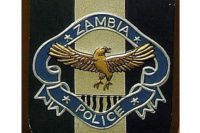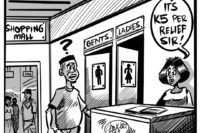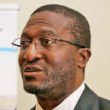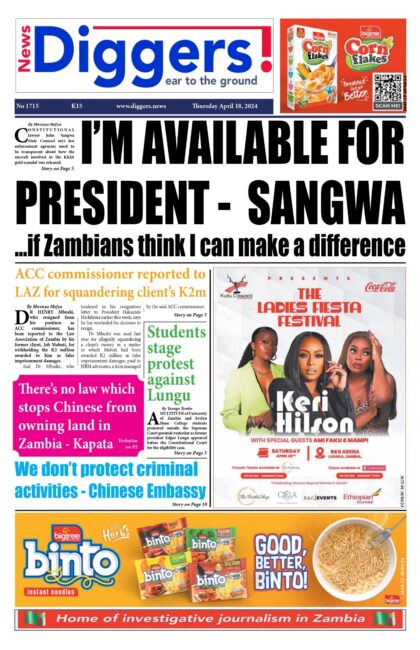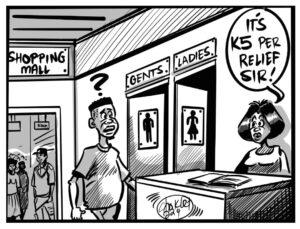Former Attorney General Musa Mwenye State Counsel has made a very good observation about how African governments react and treat citizens who criticize bad decisions. He says such oppressive regimes often abuse words like “patriotism” to portray critics as bitter dissidents who deserve no one’s respect. This is wrong, State Counsel Mwenye says, because “patriotism” and “loyalty” mean two different things in a political set-up.
“The word ‘patriotism’ is often misunderstood and sometimes deliberately misrepresented. Criticism of governments or ruling parties and comments adverse of governments are routinely classified as unpatriotic. By definition, patriotism is a devoted love, support and defence for one’s country. Patriotism is, therefore, loyalty to the country and not loyalty to any one person or group of persons. Africa has seen several dictatorial and corrupt regimes. At different times in the history of this continent, patriotism has demanded that those governments, which are corrupt and dictatorial, be criticized and condemned by citizens for abusing the countries we love,” observed Counsel Mwenye.
“The Central African Republic had Emperor Bokassa, Zaire (now the Democratic Republic of Congo), had Mobutu Sese Seko Kuku Ngbendu Wa Za Banga, while Uganda had Idi Amin Dada. Just to the south of our own beloved Zambia, we had Ian Smith in Southern Rhodesia (now Zimbabwe), who declared Independence from his Kith and Kin in England under Unilateral Declaration of Independence (UDI). In South Africa, we had the racist Apartheid Government. All the governments cited above were vile, oppressive and dictatorial. In some cases they were also corrupt, incompetent and uncouth.”
Counsel Mwenye added: “In those countries, it was everyone’s patriotic duty to speak out against these regimes and to condemn their senseless acts of oppression and misrule. It was also the highest form of patriotism not only to condemn the needless corruption of some of these regimes, but also to take a stand against oppression and corruption. Patriotism demands us to be loyal to the country and not to an individual, a tribe or a political formation. If acts of economic sabotage are committed by those within our tribe or political formation, we must speak in defence of the country.”
This statement could not have been put any better, and it could not have been any more accurate to Zambia. In Zambia today, the ruling party and its leadership have abused the word “patriotism” with unimaginable proportions. Anyone who opens their mouths to criticise government is not only regarded as unpatriotic, but is also threatened with arrest.
This is what they did to Hakainde Hichilema when he suggested that listing of State-Owned-Enterprises (SOEs) on the stock exchange is as bad as selling to foreign investors, who are the only clique with readily-available resources to buy shares.
In Zambia today, when you say there is too much corruption, abuse of authority and reckless spending by government, those in power claim that such statements are detrimental to the economy. They blame the depreciation of the kwacha on such criticism, and further warn that those uttering such sentiments would be dealt with severely.
These are signs of incompetence; this is how incompetent leaders govern, using iron fists. A working government that knows how to drive the economy can’t be brought down by simple criticism. It is also a sign of insecurity, because only an insecure government fears its own shadow. A regime that is in charge of the system doesn’t panic when it is being criticized; it simply listens and picks what it considers as constructive criticism, while ignoring political haters. A progressive government fears and respects citizens, instead of scaring and demanding loyalty from citizens who hold opposing views.
Look at what is happening in France today. The French government has accepted that citizens do not only have the right to criticize bad governance, but also has the constitutional right to protest if nothing is done about what they are complaining about. We have watched on television how the very civilized citizens of France have poured onto the streets in their millions, burning cars and destroying property. What have the police done? They have fought back, tirelessly trying to restore order, while respecting the citizens’ rights.
Like we stated above, those were very civilized citizens living in a very developed Western country endowed with all sorts of wealth, plus a huge economy. Therefore, it was embarrassing, especially from an African perspective, to see such scenes happening in a country that you aspire to be. Those protests were not a very good political advert about the state of a nation.
But can we say the protesting citizens of France were being unpatriotic to their country? No, they simply refused to be loyal to an individual holding the office of President, while issues to do with their welfare were being ignored. They refused to accept the “unjustified fuel price hikes”. They wanted a France that has favourable living conditions for citizens.
That is what true patriotism means, being loyal to a country, not one individual or political set-up. But in our Zambia, the police only consider members of the Patriotic Front as patriotic citizens who have the right to protest against the opposition and critics. That is what they call patriotism, loyalty to one individual going by the initials ECL.
This is exactly how dictatorships are born, they start by muzzling the press, and then they take away citizens’ rights of expression before arresting political opponents. Then they manipulate the Constitution to tailor it in a manner that grants them leeway to stay in power forever.




